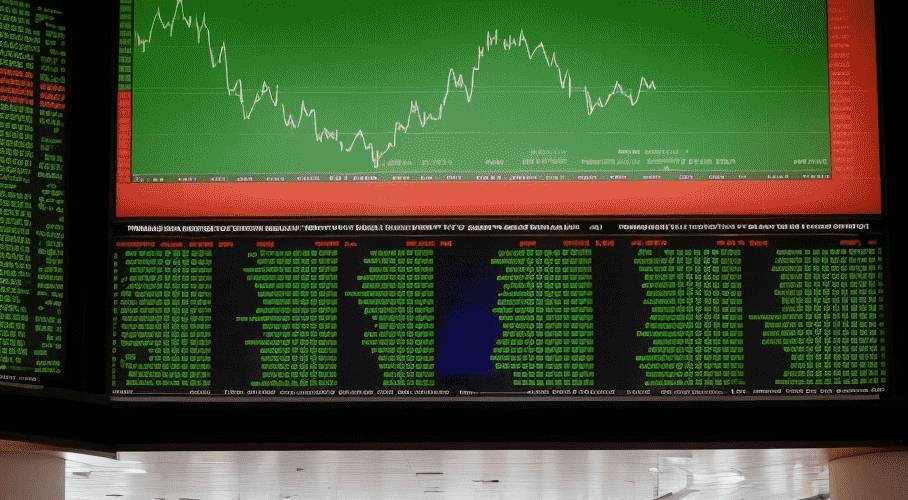U.S. Seven Giants Face Bearish Sentiment
Advertisements
Over the past two decades, the financial world has experienced numerous speculation bubbles, each more dramatic than the last. In 2000, a warning was issued regarding the overvaluation of the internet sector, foreseeing the infamous dot-com bust. Fast forward to 2006, and the housing market in the U.S. found itself in a precarious situation, leading to a notable bubble that culminated in the 2008 collapse. Just last year, the alarm was sounded again, this time about soaring prices across stocks, bonds, real estate, and even art — a situation some deemed a ‘super bubble.’
Today, a legendary investor who has accurately predicted such calamities in the past has turned his vigilant eye towards one of the most discussed topics in finance: Artificial Intelligence (AI). He has publicly cautioned that the relentless hype surrounding AI represents a classical bubble, following the same trajectory as previous historical bubbles. This assertion is not without merit. The current climate around AI has led to an unprecedented influx of capital into the sector, resulting in inflated valuations that bear striking similarities to the exuberant periods surrounded by past financial disasters.
The recent data paints a staggering picture of the market. The combined market capitalization of America’s technology giants is now astronomical. As of last Friday, the figures were staggering: Amazon's valuation soared to $2.2 trillion, Tesla reached $1.1 trillion, and Nvidia achieved an incredible $3.4 trillion. Google's market cap stands at $2.1 trillion, Meta at $1.4 trillion, Microsoft at $3.1 trillion, while Apple leads with an impressive market cap of $3.6 trillion. These seven companies collectively amassed nearly $17 trillion, dwarfing the total market cap of A-shares, estimated at a mere 86.5 trillion yuan, or around 12 trillion dollars. This means that the market capitalization of these tech powerhouses surpasses that of the entire A-share market by over 40%, marking them as leviathans in the global financial complexion.

With such immense valuations comes inevitable risk. Should the availability of market funds dwindle, these inflated figures could elude their foundation and trigger a turbulent downturn, reminiscent of the chaotic market fluctuations witnessed in 2022. During that year, various factors coalesced to wreck havoc on stock prices, causing considerable losses among investors.
Parallel to this cautionary tale stands an interesting indicator: many financial institutions are beginning to retreat from these tech titans. Data revealing a trend in the last two years shows that actively managed funds have been reducing their stakes in many of the so-called ‘Seven Sisters’ of American stocks. This suggests an evolving sentiment among seasoned investors who may view the tech sector's growth trajectory as precarious.
Notably, one of the most prominent figures in investing, Warren Buffett of Berkshire Hathaway, has trimmed his holdings in Apple consecutively over four quarters since Q4 of 2023, lowering his shares from 905 million to about 300 million, with expectations of further reductions.
Furthermore, the acclaimed investor and founder of the quant fund, Jim Rogers, has warned that the global market euphoria could lead to a crisis, affirming that he has dramatically reduced his positions in the market.
These insights lead to the anticipation of significant volatility for the U.S. tech giants in the coming months. Historically, before a major sell-off or crisis, the market often enjoys a temporary phase where stock prices remain buoyant, illustrating why despite prominent sell-offs, stock values may not exhibit immediate declines.
Contrasting this scenario is the position of A-share technology companies. Predominantly, A-share tech enterprises are still in their nascent stages, lacking the advanced technological research, market share, and brand equity compared to their U.S. counterparts. Yet, this gap opens up a plethora of opportunities for growth and investment. As many A-share companies consistently engage in the innovation race, targeting emerging fields like AI, semiconductors, and biotechnology, they are making notable strides backed by substantial domestic market demand.
For investors, there’s greater wisdom in recognizing the potential within A-share companies rather than doggedly pursuing the tech giants of the U.S. The perception that U.S. stocks are inherently superior can be a constraining view. With government policies favoring the maturation and regulation of the A-share market in 2023, there lies hope for a bright future. A-share tech firms may soon surface prominently on the global stage, presenting a robust avenue for investors seeking significant returns in the dynamic theater of technology and finance.
Leave your thought here
Your email address will not be published. Required fields are marked *